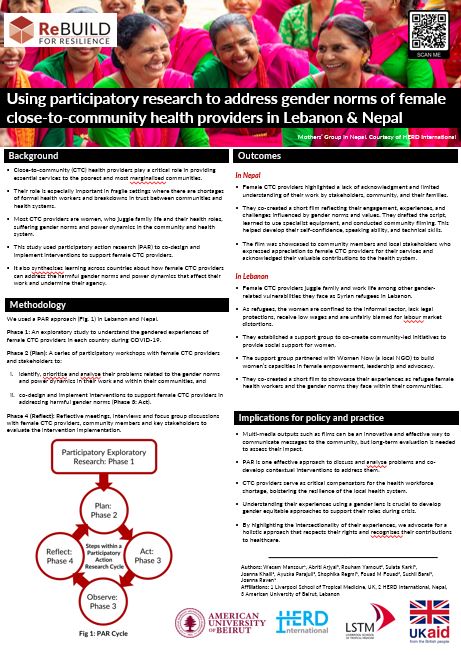
Using participatory research to address gender norms of female close-to-community health providers in Lebanon & Nepal – a poster
Close-to-community (CTC) health providers play a critical role in providing essential services to the poorest and most marginalised communities. Their role is especially important in fragile settings where there are shortages of formal health workers and breakdowns in trust between communities and health systems. Most CTC providers are women, who juggle family life and their health roles, enduring gender norms and power dynamics in the community and health system.
This poster (download it here) presents the findings of a ReBUILD study which used participatory action research (PAR) to co-design and implement interventions to support female CTC providers. The study synthesises learning across countries about how female CTC providers can address the harmful gender norms and power dynamics that affect their work and undermine their agency.
Further information
More on the study and its other outputs here.